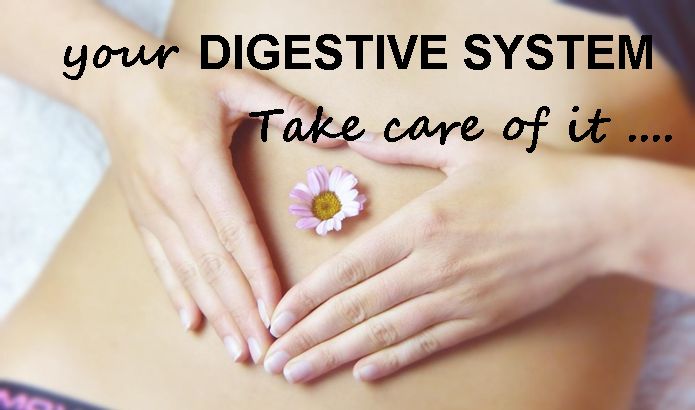Helpfull Hints
If the eyes are the window
to the soul,
then the digestive system is the
window to good health
The digestive system is the cornerstone between eating and having adequate fuel for the body to thrive.
The digestive system is the cornerstone between eating and having adequate fuel for the body to thrive.
All life relies on nutrients to survive, and the only way our bodies can absorb these vital elements is via the digestive system. As humans, unless we can digest and absorb nutrients efficiently from the food we eat, we won’t survive.
The digestive system uses enzymes to break down everything we eat or drink into useful components like proteins, fatty acids, vitamins, minerals, and carbohydrates. Our blood stream then moves these components to different parts of the body, where they are used as energy, to build muscles, repair cells, and more.
Although we hardly ever think about it, our digestive systems are continuously working, turning the food we eat into fuel for our bodies, and so much more.
Your digestive system is an important structure that comprises the gastrointestinal tract (which includes your mouth, oesophagus, stomach, and intestines) as well as other organs that assist with digestion, like the pancreas, gallbladder, liver, and salivary glands. Its primary function is to break down foods into the vital building blocks our bodies need to survive, grow, and thrive.
WHAT HAPPENS… after food has left your plate
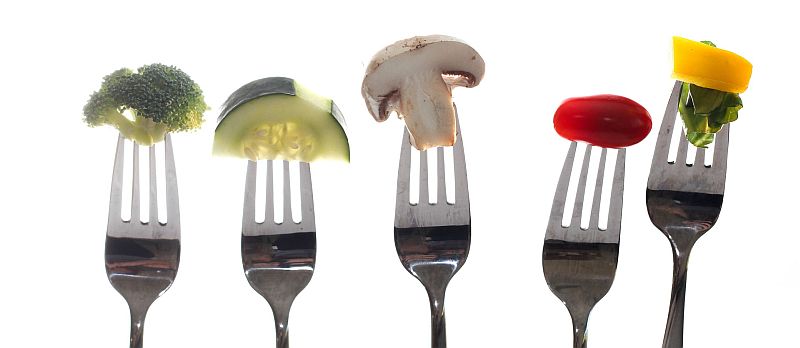
Digestion starts in the mouth even before you start to eat, when you salivate and then chew your food to break it up. If you are a fast eater or don’t chew food properly its only partially broken down before swallowing. This might lead to indigestion or stomach discomfort as when the food hits the
stomach it is a step behind where it should be in digestion.
Our saliva contains an enzyme that breaks the starch from the food into smaller molecules.
Our saliva contains an enzyme that breaks the starch from the food into smaller molecules.

The swallowed food is pushed into the esophagus, which connects the throat above with the stomach below. A ringlike valve blocks the passage from the esophagus to the stomach, but as the chewed food approaches, the muscles around the ring relax and the food passes into the stomach. The upper part of the stomach is a holding area. Through the action of the stomach muscles, little bits at a time are pushed into the lower part of the stomach, where it mixes with liquids and stomach acid, and an enzyme that breaks down protein, digestive juices that further break the solid food into a liquid form.
Mechanically you can have issues with digestion if you are cramped over when you are eating. Sitting slumped or lying down after eating can inhibit a direct pathway for the food to travel though the digestive system. The stomach needs some room to expand to allow for the influx of food or it will get squashed
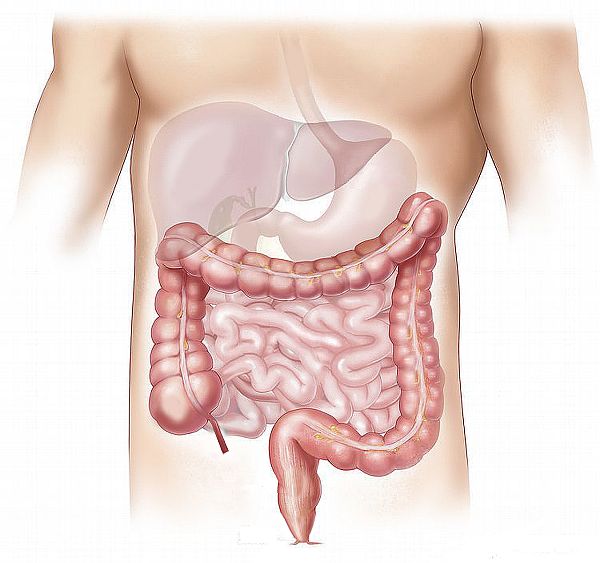
Next
it passes slowly into the small intestine and then the colon
it passes slowly into the small intestine and then the colon
In the small intestine, the food mixes with bile produced in the liver. The bile is stored in the gallbladder, but at mealtime it is squeezed out of the gallbladder, into the bile ducts, and on through to the intestine, where it dissolves fat into liquid. The dissolved fat is further digested by enzymes from the pancreas and the intestine.
Finally, all of the digested nutrients are absorbed through the intestinal walls, and carried off in the bloodstream to other parts of the body for storage or further chemical changes. The small intestine is where most of the fuel from food is absorbed into the blood stream.
The large intestine or colon is where the insoluble parts of food, from foods high in fibre, that cannot be broken down are fermented and prepared for removal as a stool bulk. This part has muscles that contract and release around the bulk to keep it moving through the colon, much like how a caterpillar would crawl along.
With a very low fibre diet, there is nothing to encourage this movement and the digestive muscle don’t need to work, so any sudden changes to a healthier diet can cause discomfort as it all kicks back into gear.
This part of the digestive system is where water is reabsorbed and hydration plays a role, if dehydrated excess fluid
will be taken out of the bulk which makes it hard to remove.
The waste product of the process includes old cells and undigested bits of food that get pushed into the colon. This part of the digestive system is where water is reabsorbed and hydration plays a role, if dehydrated excess fluid will be taken out of the bulk which makes it hard to remove and cause constipation.
Constipation
…is a preventative conditionOne of the most common digestive problems Bowel movements should not be skipped for more than 2 days
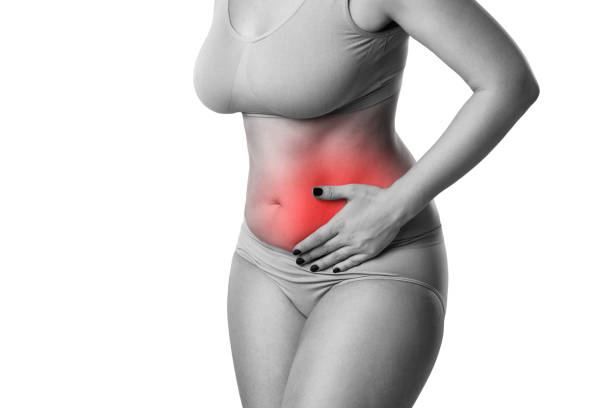
Common symptoms
Difficult and painful bowel movements
Bowel movements fewer than three times a week
Feeling bloated or uncomfortable
Feeling sluggish
Abdominal pain
Some causes to look out for:
Lack of fibre in the diet
Physical inactivity
Some medication
Irritable bowel syndrome
Aging
Changes in routine, like travelling etc
Overuse of laxatives
Your mood matters – depression and stress may trigger constipation
Ignoring the urge to go is NOT GOOD
Adequate water intake is necessary to help keep stools soft
When you’re constipated, your body isn’t able to get rid of waste like it needs to. Having it every once in a while is common, but if you’re dealing with symptoms for more than 3 months, your constipation is chronic. And that raises your chance of having complications.
Few health conditions
Cancerous tumors, hernia, scar tissue, diverticulitis, colorectal stricture, neurological conditions, intestinal blockage, celiac disease, irritable bowel syndrome, inflammatory conditions****
Good bacteria in the colon contribute to the fermentation of fibres and protect the intestinal lining and eventually expelled through the bowel.
Your body is full of trillions of bacteria, viruses and fungi. They are collectively known as gut microbiota, or the microbiome.
While some bacteria are associated with disease, others are actually extremely important for your immune system, heart, weight and many other aspects of health.
The gastro-intestinal tract’s healthy function relies on beneficial bacteria showing up. Beneficial bacteria are important when looking at everything from digestion to correct pH balance (acidity), to processing of nutrients and guarding against the build up of harmful bacteria.
The gut flora has incredible power over the immune system, tying overall health closely with the state of the gut. In this modern era, we’re quick to treat bacterial and viral issues with antibiotics. The trouble is, when antibiotics kill the bad bacteria they also kill a lot of the good type. Repeated use of antibiotics over time is no friend to good bacteria in the gut, which then have to rebuild all over again.
This leaves a window for bad bacteria and harmful yeasts to take a foothold and multiply faster than we’d like them to within the gastrointestinal tract.
The gut microbiome plays a very important role in your health by helping control digestion and benefiting your immune system and many other aspects of health.
An imbalance of unhealthy and healthy microbes in the intestines may contribute to weight gain, high blood sugar, high cholesterol and other disorders..
BENEFITS of good digestive system
When your digestive system’s operating at its best, you can function at your best. These are some of the ways good digestion boosts your health:- Healthy weight maintenance
- Enhanced mental clarity
- Better elimination of toxins
- More energy and stamina
- Improved nutrient absorption
- Regular, consistent bowel movements
- Fewer mood disturbances
- Functioning immune system
Prioritising the health of your digestive system is a must for overall wellbeing. A balanced diet, supported by quality nutritional supplements, is one of the most effective ways to look after your digestive tract so that it can look after you!
* * In a nutshell happy gut, happy you! * *
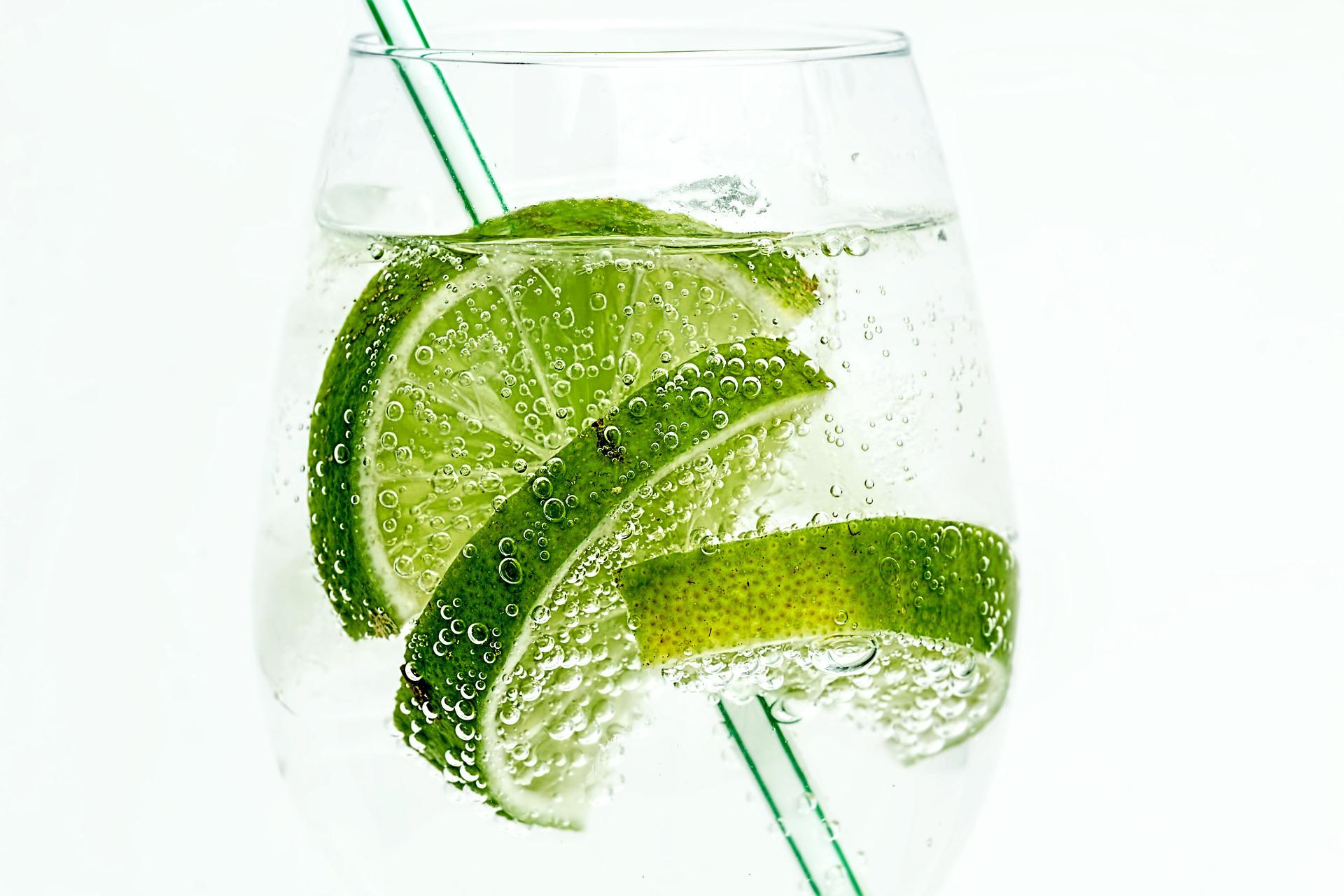
Essentially, detoxification is medicinal
and refers to the natural removal of
toxins from the body. On a day to day basis
the liver, kidneys,
intestines, lymphatic systems are doing this
work continuously for us.
and refers to the natural removal of
toxins from the body. On a day to day basis
the liver, kidneys,
intestines, lymphatic systems are doing this
work continuously for us.

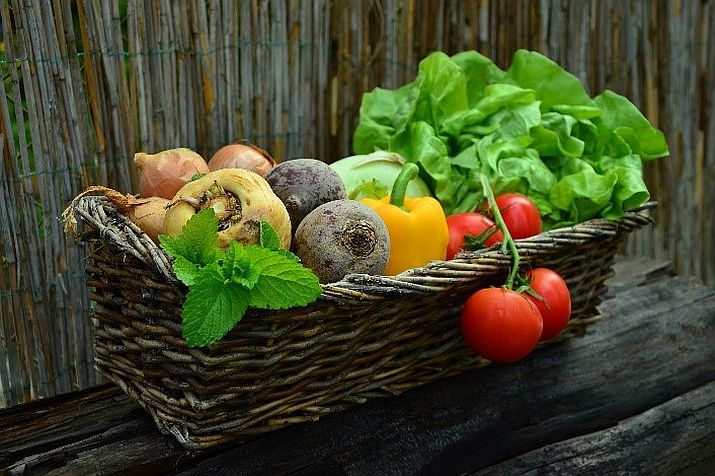


We are exposed to so many chemicals – be it in our food supply, the air we breathe, daily we use cosmetics, and other chemical agents in cleaning. Some of these are very harmful and can cause potential damage.
Today, more than ever, we're bombarded with toxins—from pollution to preservatives, pesticides, and excessive sugar in the foods we eat. These things have the potential to throw blood sugar out of whack, deplete nutrient stores, cause a buildup of substances such as heavy metals, and lead to chronic inflammation—all of which can make us tired and sick. And we'll continue to feel this way unless we make a shift to detoxify.
Although we can't always control the world around us or our exposure to all pollutants and chemicals, we can make strategic dietary changes that can help counter their effects by supporting the liver, healing the gut, maintaining healthy blood sugar, and lightening our overall toxic load. This, in broad terms, is what a healthy detox diet should do.
The truth is our bodies might not be fully equipped to deal with the toxic burden they're now facing. "Whn you become toxic, the mechanism for detoxification in the liver gets sluggish, and certain toxins can remain active longer than we want or than our systems can handle. This makes us sick and impedes normal metabolism. It also causes fluid retention, bloat, and puffiness."
Signs you may want to consider a healthy detox
Think back to the time in your life when you felt the healthiest. How does your current state compare? If you feel significantly less vital, or you've never felt that great to begin with, then it could be time to rethink what you're eating and try a detox.
Here are some signs it could be time to make a change:
- You crave sugar and carbs.
- You experience digestive distress like bloating.
- You feel spacey or foggy.
- You're always exhausted.
- Your joints are achy.
- You're stressed, depressed, or anxious.
- You can't lose weight.
- You have trouble sleeping.
- You can't concentrate.
The biggest advantage of detoxing is that it allows the body to rid itself of any excess waste that has been stored. This can lead to weight loss to some extent. When you follow a detox process the organs get freed up to function the way they should. As a result your immune system gets a boost and you absorb nutrients better.
Benefits for our body:
Here are some signs it could be time to make a change:
- ◆ Enhances the Immune System
- ◆ Improves Memory and Sleep
- ◆ Improves Sexual Health
- ◆ Provides Internal Cleansing with Full Body Purge
- ◆ Provides Liver Detoxification
- ◆ Provides Liver, Kidney and Parasitic Cleansing
- ◆ Allows the Purging of Heavy Metals
- ◆ Significantly Reduces Pain
- ◆ Increases Energy and Reduces Stress
Acute inflammation
Tonsilitis~
Joint pain~
Bowel inflammation~
Headache~
Body pain~
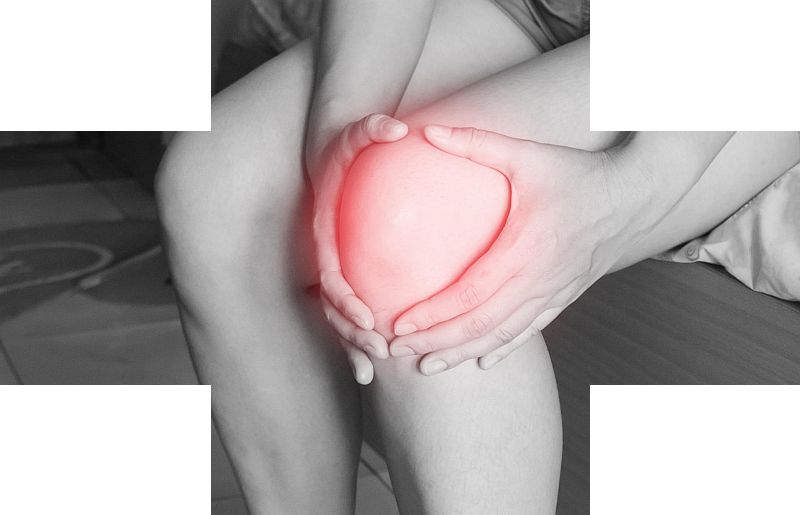
Chronic inflammation
~Arthritis
~Atheriosclerosis
~Bowel disease
~Joint disease
~Skin disease
Before you can fully grasp why an anti-inflammatory diet may be helpful to understand what inflammation is in the first place. Inflammation is the body's normal response to infections, diseases, and injuries. In these situations, inflammation is part of the healing process, and it subsides as the acute medical problem resolves.
Chronic inflammation is inflammation that persists for a long period of time. It can cause changes at the site of the inflammation and elsewhere in the body that can lead to a host of health problems. Over time, severe chronic inflammation can increase the risk of diseases like heart disease, diabetes, cancer, arthritis, and chronic obstructive pulmonary disease (COPD), auto immune diseaseetc.
Since our food choices influence the level of inflammation in our bodies, the anti-inflammatory diet is thought to curb chronic inflammation and help prevent conditions like heart disease, arthritis, and cancer.
There’s no miracle food out there that’s going to cure people with chronic inflammation. You need to have an anti-inflammatory lifestyle and diet
* * *
Inflammation causing foods
• SUGARS – Sometimes hidden
Excessive sugar intake has been linked to tooth decay, increased risk of obesity, metabolic syndrome, type 2 diabetes, and chronic inflammation!
Avoid: Soft drinks, punches, fruit drinks, candy, pastries, deserts, and sweet snacks.
Did you know there are 39 grams of sugar in a can of Coke! Read labels and look for sugar disguised with these names: corn syrup, fructose, dextrose, golden syrup, sucrose and maltose.
Substitute: Natural sweeteners like Stevia, Raw honey, or Blackstrap molasses sparingly.
• COMMON COOKING OILS
French fries, fried chicken, and other fried foods: Cooking them in vegetable oil doesn't make them healthy. Corn oil, safflower oil, and other vegetable oils all have omega-6 fatty acids. You need some omega-6s, but if you get too much you throw off the balance between omega-6s and omega-3s in your body and end up with more inflammation
Avoid: Sunflower oils, Seeded oils - beware these are often used in most processed foods.
Substitute: Extra virgin olive oil, Coconut oil
• TRANS-FATS
Trans fats (look on the label of products) raise LDL cholesterol, which causes inflammation.Avoid: Fast foods; Deep fried foods; commercially baked goods.
Substitute: Natural peanut butter and foods without the trans-fats.
• DAIRY PRODUCTS
Milk is a common allergen that can trigger inflammatory responses like IBS, skin rashes, hives, acne, and breathing difficulties and auto immune diseases. As much as 60% of the world’s population cannot digest milk easily.
Avoid: Milk and dairy products like butter and cheese. Many cakes, crackers, cream sauces and boxed cereals contain milk ingredients.
Substitute: Coconut or Almond milk. Kefir or unsweetened yogurt for those not allergic to milk.
• RED MEAT AND PROCESSED MEAT
Red meats are beef, lamb, mutton, and pork, while processed meats include ham, sausage and salami, polony, viennas.
Processed meat includes animal products that have been smoked, cured, salted or chemically preserved. Researchers at the University of California San Diego School of Medicine found that red meat contains a molecule that humans don’t naturally produce, the body develops an immune response that may trigger chronic inflammatory response. This low-grade, simmering inflammation that won’t go away has been linked to cancer and heart disease.
Substitute:Replace the bulk of your red meat with organic vegetables, poultry and fish, and relegate red meat to a weekly treat. When you do eat red meat, remember to choose lean cuts and preferably, that of grass-fed animals. It is also advisable not to overcook your meat and use moist heat cooking like stewing and boiling more often than high-temperature dry heat methods such as grilling and frying.
• ALCOHOL
Regular high consumption of alcohol has been known to cause irritation and inflammation of the oesophagus, larynx (voice box) and liver. Over time, the chronic inflammation promotes tumour growth and gives rise to cancer at the sites of repeated irritation.
Substitute: A refreshing and thirst-quenching glass of pure, filtered water
• REFINED GRAINS
A lot of the grains we eat nowadays are refined. They are devoid of fibre and vitamin B compared to unpolished and unrefined grains that still have the bran, germ and the aleurone layer intact. This makes refined grains as good as refined sugars, which are practically empty calories. And like refined sugars, refined grains have a higher glycaemic index (GI index) than unprocessed grains and when they are consistently consumed, can hasten the onset of degenerative diseases like cancer, coronary disease and diabetes.
The common refined grains are: white rice, white flour, white bread, noodles, pasta, biscuits and pastries. To make things worse, many products with refined grains undergo further processing to enhance their taste and look, and are often loaded with excess sugar, salt, artificial flavours and/or partially hydrogenated oil in the process. A prime example is boxed cereals which contain substantial amounts of added sugar and flavourings.
Substitute: Reduce of cut processed grains and replace with whole foods which are gluten free. Almond flours, Coconut flours, Spelt, Quinoa
• ARTIFICIAL FOOD ADDITIVES
Some artificial food additives like aspartame and monosodium glutamate (MSG) reportedly trigger inflammatory responses, especially in people who are already suffering from inflammatory conditions such as rheumatoid arthritis.>br />Only packaged foods contain artificial food additives. If you need to buy them, read the labels carefully and weigh your risks. If you order Chinese take-out, make sure you have the option to ask for no MSG.
Substitute: Besides limiting the consumption of processed foods, use anti-inflammatory herbs, spices or natural sweeteners to add flavour to your dishes instead of relying on food additives.
• ANY FOODS THAT YOU MAY BE SENSITIVE TO
Many people are sensitive to certain foods but are totally unaware of it. Unlike food allergies whereby symptoms usually hit fast and furious, symptoms caused by food intolerance may take a longer time to manifest. Consequently, when symptoms of food intolerance do appear, they are often brushed off as common minor ailments such as tiredness and headaches. But repeated, long-term exposure to food that irritates can cause inflammation and lead to chronic disease.
Common food allergens are gluten, milk, nuts, eggs and nightshade vegetables. Contrary to common belief, it is possible to develop an allergy to the foods that you eat often.

